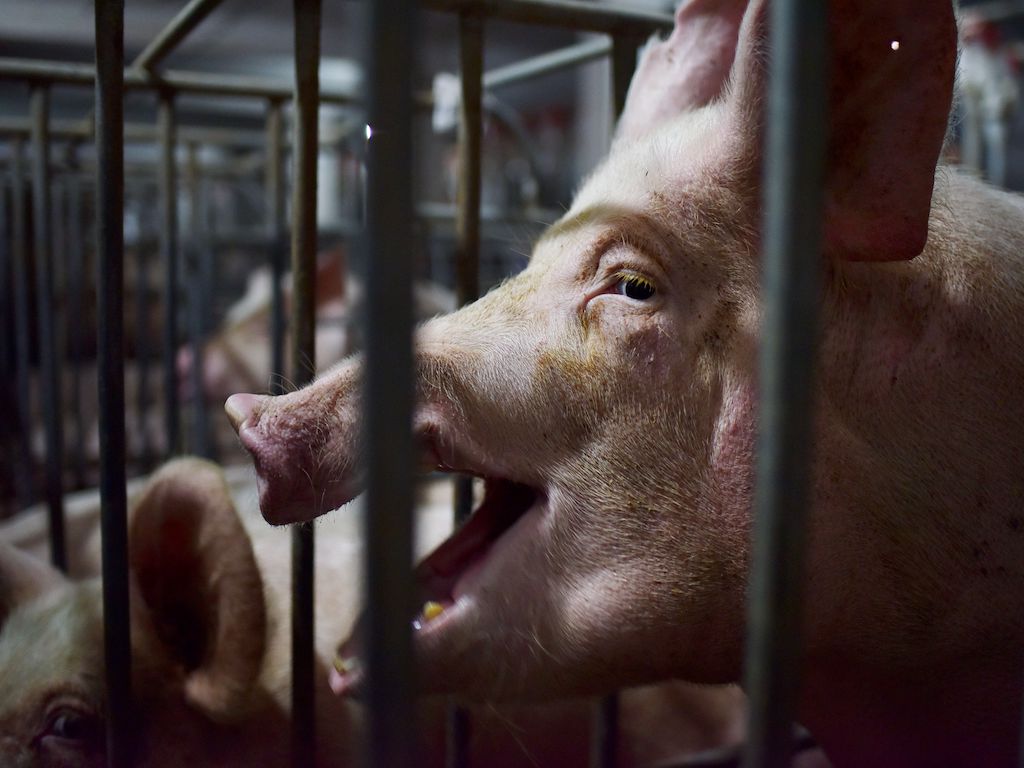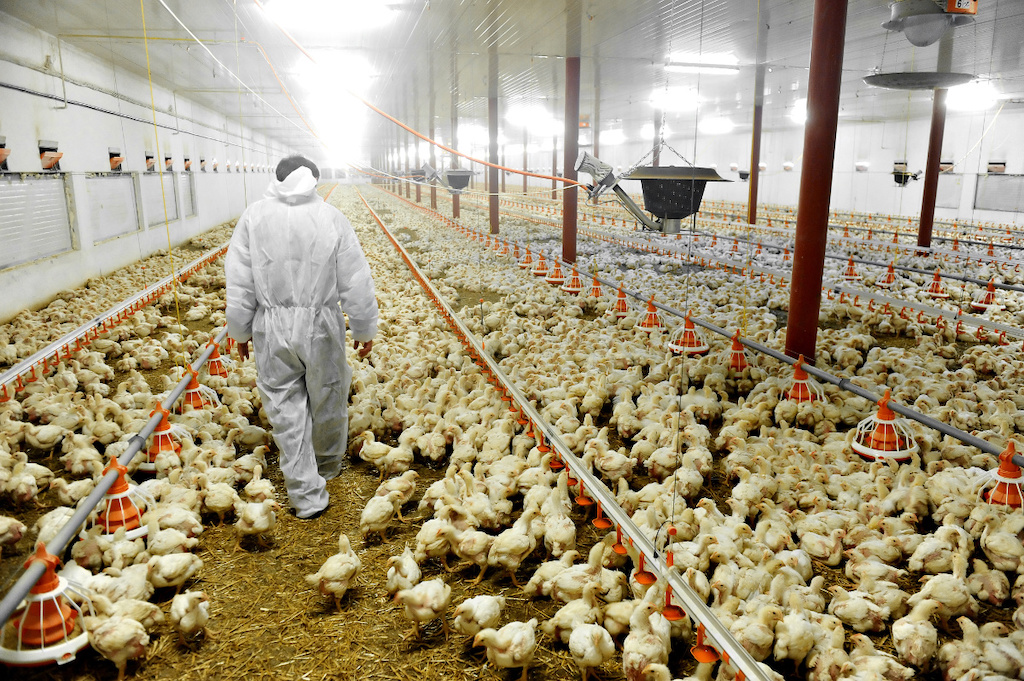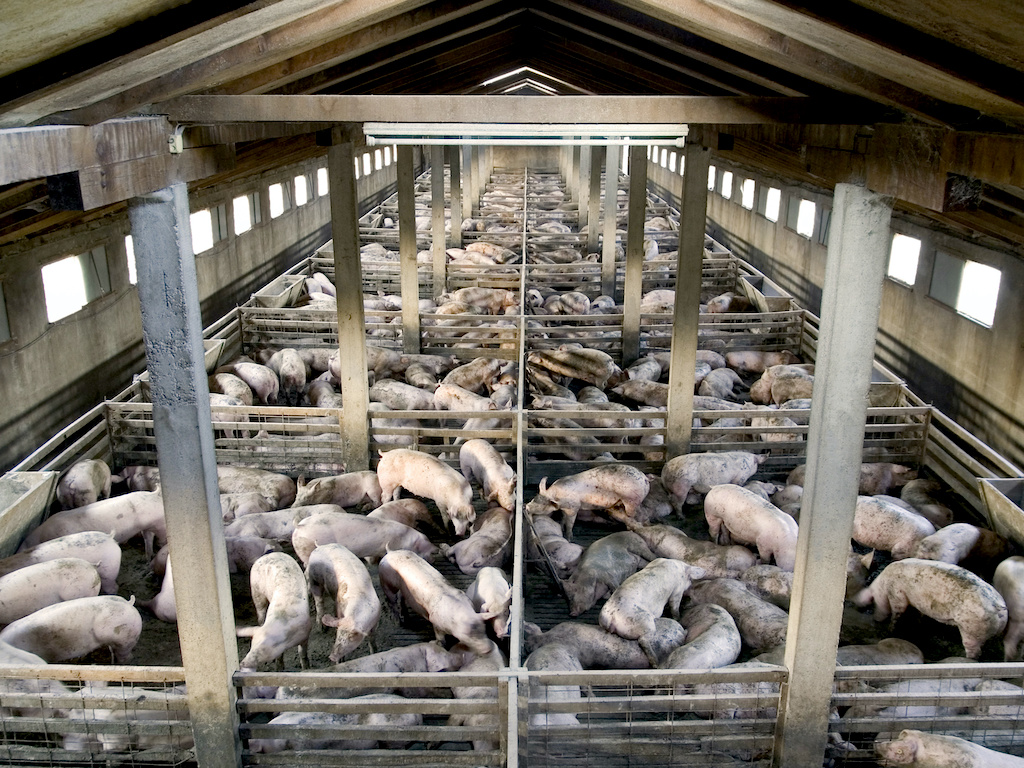4 Mins Read
People are failing to acknowledge the role of factory farming in being a “pandemic catalyst risk”, especially those who are committed meat eaters, according to new research. In the study, scientists warn of the enormous health threats posed by intensive animal agriculture, from zoonotic disease emergence to the rise of antibiotic resistance, and say that better public understanding of these risks is critical.
New research led by a team of British scientists finds that people are generally failing to recognise the role of intensive animal agriculture in causing infectious diseases. The study, published in the peer-reviewed journal Appetite, examined public understanding and opinion to find out where the people are placing the blame when it comes to zoonotic pandemic outbreaks.
Overall, the findings show that people fail to see the link between factory farming and the spread of infectious diseases, but “those who are highly committed to eating meat” struggle more in acknowledging how global meat consumption fuels the problem.
Read: Demand for animal protein & livestock farming is driving zoonotic pandemics, U.N. report finds
Even after being provided information about the detrimental effects of factory farming, including promoting antibiotic resistance and making it easier for emerging diseases to be transmitted from animals to humans, the committed meat eater group were still unconvinced about factory farming bans or interventions.

People blame wild animal trade or lack of government preparation for epidemic outbreaks as opposed to animal agriculture and global meat consumption.
Dhont, Piazza & Hodson (2021)
Instead, committed meat eaters tend to favour policies aimed at regulating or banning wild animal markets, the researchers found.
“The study demonstrates that people blame wild animal trade or lack of government preparation for epidemic outbreaks as opposed to animal agriculture and global meat consumption,” wrote the team of scientists in a statement.
“The scale of production and overcrowded conditions on factory farms make it easy for viruses to migrate and spread. Furthermore, the common practice of feeding antibiotics to farmed animals promotes antimicrobial resistance, threatens public health.”
Scientists in the study, led by Dr. Kristof Dhont of the University of Kent, says that it is now critical for the planet to be “better prepared to handle infectious disease outbreaks, which we are edging closer towards.”
Read: Factory farming poses ‘real and present’ danger of superbug antibiotic resistance, experts warn
“As world populations swell, our dependence upon meat is likely to grow, making it increasingly pressing to come to grips with the detrimental role of intensive farming and take action to turn the tide,” said Dr. Dhont, who co-authored the research with Dr. Jared Piazza of Lancaster University and Professor Gordon Hodson of Brock University.

Our dependence upon meat is likely to grow, making it increasingly pressing to come to grips with the detrimental role of intensive farming.
Dr. Kristof Dhont, University of Kent
“Appetite for meat can be a stumbling block for considering the role of animal agriculture in the spread of zoonotic disease [and]…a factor inhibiting us from taking actions towards a safer future.”
It’s not the first time that scientists have called on greater public understanding of the need to reduce meat consumption and take action on factory farming to prevent future health crises.
Last year, an assessment by experts at the UNEP and the International Livestock Research Institute listed the increased demand for animal protein and unsustainable livestock farming among the top seven anthropogenic drivers of pandemics. Other factors include wildlife exploitation, resource extraction and climate change.
However, it does appear that general public awareness of these risks is on the rise, with some polls finding greater support for factory farm interventions. One U.K. poll suggests that as many as 85% of Brits are now in favour of an immediate ban on factory farming, while another Dutch survey found nearly two-thirds of the population are supporting a halving in global animal protein intake through a variety of meat reduction policies.
Lead image courtesy of Shutterstock.




